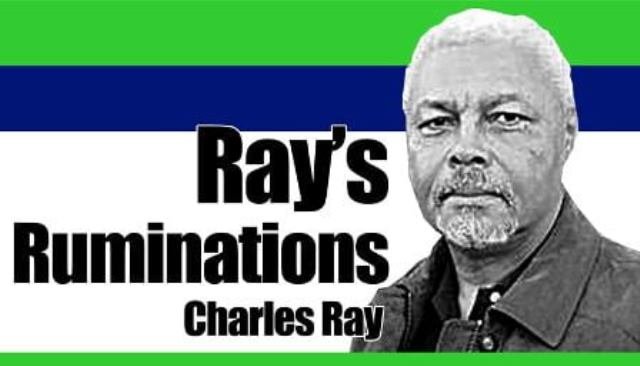
Have you ever approached an intersection where your view of the cross street is blocked, you have the right of way and the cross street has Stop signs, and you’ve just breezed right on through that intersection without giving it a second thought? I’ve done it and I’ve no doubt that most of you reading this have as well.
What explains this behavior? It can be explained in one simple word really—trust. We drive through that intersection trusting that most people driving on the road with stop signs will obey them. We play the odds that our chances of being broadsided by someone who ignores the sign are slim.
We do this in our daily lives dozens of times a day and never think about it. In a store, you surrender your credit card information when you make a purchase, trusting that most clerks won’t take that information and misuse it or sell it to unscrupulous people who will. We drop letters in the mail box, trusting that the postal worker won’t dump them in the nearest ditch.
It is this unspoken and often unremarked trust we have in our fellow citizens to follow the rules that helps our societies to function the way they do. Imagine, if you will, what life would be like if we didn’t have it.
We would never use our credit cards because every time you do, you’re exposing your credit card information to possible misuse. We wouldn’t put our money in banks where we have no control over it, and we would probably pay for everything in cash—from the money we keep buried in our back yard—or by barter. Economic activity would come to a screeching halt and be put into reverse, going back to a time before banks and credit.
Traffic would become hopelessly snarled as everyone stopped at every intersection, marked or not, because they wouldn’t trust other drivers to follow the rules.
Trust makes things possible, and helps them to flow smoothly.
But, trust these days is being eroded by the very people whose main obligation is to foster mutual trust in their communities. Politicians who deal in lies and misinformation, who broadcast ‘alternate facts,’ are chipping away at our trust in institutions and each other. The politicians who refuse to accept the results of elections unless they win are eroding our trust in political systems. Politicians who use fraud and deceit to get elected further diminish the essential bonds that help a society function in ways that benefits its members.
The bottom line, though, is that we can’t blame the politicians for this sorry state of affairs. We, the people, are to blame.
Too many people have become obsessed with single issues, allowing politicians to divide us in much the same way a rancher divides up a cattle herd. All over the world, we’ve bought in to the ‘we-they’
culture, no longer trusting people who don’t agree with us on single issues. We’ve lost the ability to distinguish fact from fiction, accepting whatever we hear from members of ‘our’ group, and disbelieving anything that comes from ‘them.’
I believe in an old saying, ‘trust, but verify,’ and while I don’t agree with the politics of the person who coined that phrase, I acknowledge that it makes sense, and I respect the author.
We need to go back to that. Learn to ‘agree to disagree,’ and ‘disagree without being disagreeable.’ We need to trust that other people will follow the rules—mainly because we follow them ourselves, and we need to respect others even those who believe, worship, vote, or think differently from us.
Trust is the glue that holds our societies together. When we lose trust, those bonds begin to deteriorate.
What are we going to do about it? – NWI




